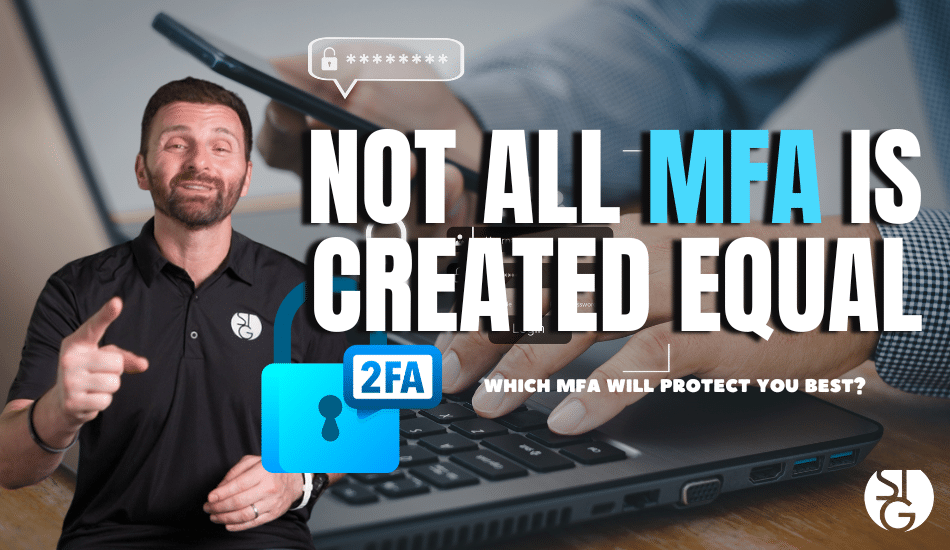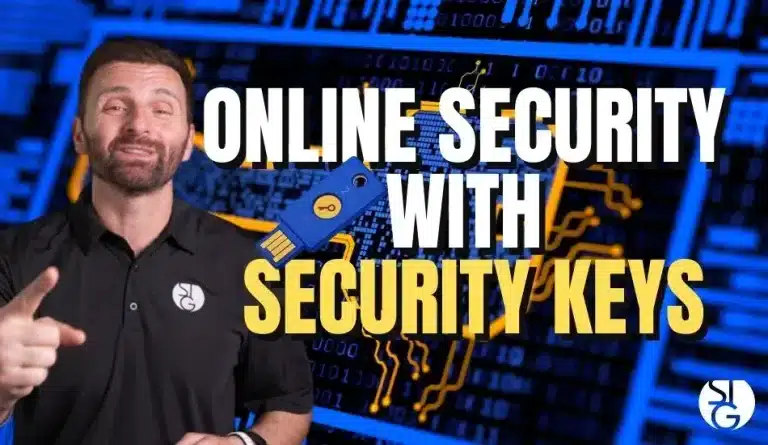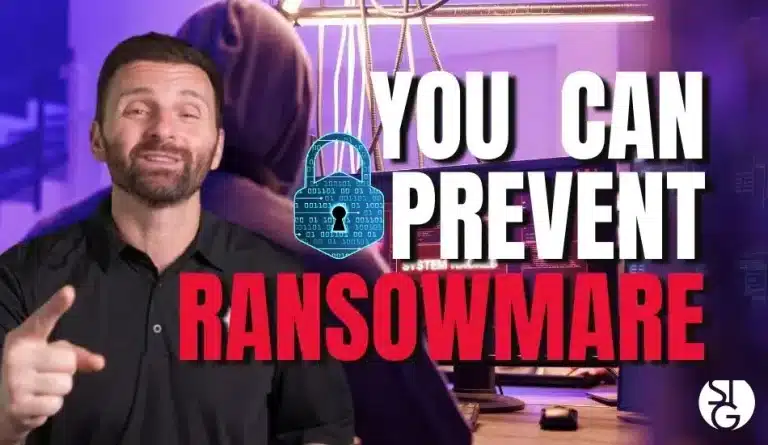MFA, or Multi-Factor Authentication, is one of the best defenses against cyberattacks. But not all MFA is created equal! Which type will protect you best?! Let’s find out.
As someone who services businesses in different industries, one of the most universal things I tell my clients about is the importance of enabling MFA. While it’s true that any MFA is better than just relying on passwords, some types are significantly more secure than others.
In this post, we’ll break down what MFA is, whether you really need it, the different types available, and why choosing the right one matters more than ever.
What Is MFA?
Let’s start with the basics. Multi-factor authentication, or MFA, is a security method that requires users to verify their identity using two or more factors before gaining access to a system.
These factors typically fall into three categories:
- Something you know (like a password or PIN)
- Something you have (like a phone or a security key)
- Something you are (like a fingerprint or facial recognition)
The goal is simple: even if one factor is compromised, the attacker won’t have access unless they also have the other factor(s). Think of it as locking your front door and setting an alarm—two barriers instead of one.
Do You Really Need MFA?
A question I get all the time from all types of business professionals. And the short answer? Yes, absolutely.
Cyberattacks are becoming more sophisticated, and relying on passwords alone is no longer enough.
High-profile breaches have shown us that even strong passwords can be compromised. MFA significantly reduces the risk by adding another layer of security.
However, here’s the catch: the type of MFA you use matters. Some methods, like SMS-based authentication, are more vulnerable to attacks than others. We’ll cover this next.
Types of MFA: The Good, the Bad, and the Secure
Not all MFA methods are equally secure. Let’s break them down:
- SMS or Email-Based Codes
This is the most common type of MFA, where a code is sent to your phone or email. While it’s better than nothing, it’s also the easiest to hack. Attackers can intercept these codes using SIM-swapping or phishing.
- Authenticator Apps
Tools like Google Authenticator or Microsoft Authenticator generate time-sensitive codes on your phone. This method is much safer than SMS since it doesn’t rely on a network connection.
- Hardware Tokens
These are physical devices, like YubiKeys, that generate codes or use cryptography to verify your identity. They’re highly secure but can be inconvenient if lost.
- Biometrics
Fingerprint scans, facial recognition, or even retina scans fall under this category. These are hard to replicate but can sometimes be bypassed by sophisticated attackers or technical flaws.
- Phishing-Resistant MFA
The gold standard. This includes methods like FIDO2-compliant security keys or systems that don’t rely on passwords at all. These are harder to bypass, even for seasoned hackers.
Why Choosing the Right MFA Matters
While all MFA adds an extra layer of security, some methods can still be vulnerable to social engineering attacks, phishing, or outright theft. For businesses, especially those handling sensitive data, choosing the right type of MFA is critical.
A good MFA strategy should:
- Protect against phishing.
- Minimize user fatigue (nobody wants constant prompts).
- Fit your organization’s workflow.
Phishing-resistant MFA, for example, not only safeguards your accounts but also reduces the risk of breaches caused by human error.
The Best MFA for You
So, do you need MFA? Absolutely. But don’t stop at just any MFA—invest in the right type. Whether you’re a business securing sensitive data or an individual protecting personal accounts, stronger MFA options like hardware tokens or phishing-resistant methods are worth the extra effort.
If you’re unsure where to start or how to implement the best MFA for your needs, reach out to a trusted IT provider—like us at STG Infotech—for guidance.
Check out our last IT topic! ➡️ Don’t Use Cloudflare Until You See This
If you’re a Los Angeles-based business looking for reliable IT support that doesn’t make you wait for answers, feel free to fill out a form at stginfotech.com, email us [email protected] or schedule a call via the calendar link below to learn more about how we can help you plan your IT infrastructure.
STG Infotech proudly provides IT Services for Small to Medium Businesses in Greater Los Angeles. We’d love to see if we can help you too!

Let’s dive into your IT!
Schedule a free 15-minute Virtual Meeting with a Business Technology Specialist of STG Infotech and get a closer look into your IT challenges.
We will assess your current IT infrastructure and answer any questions you may have about IT Services or partnering with STG IT.




